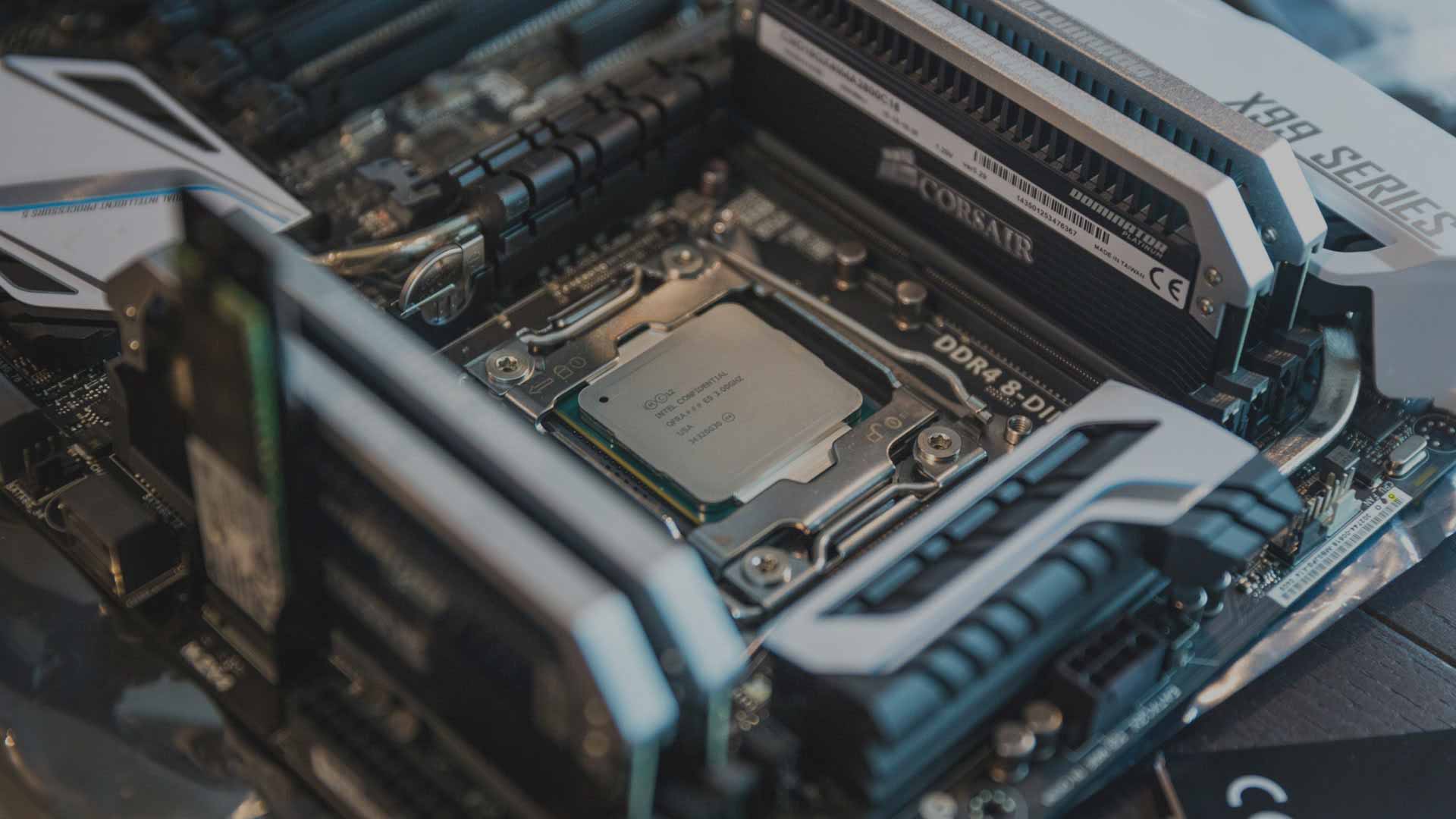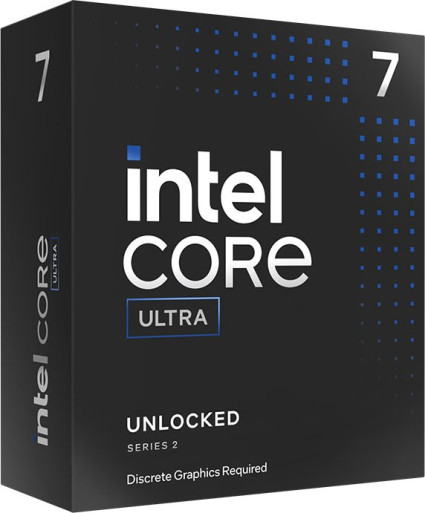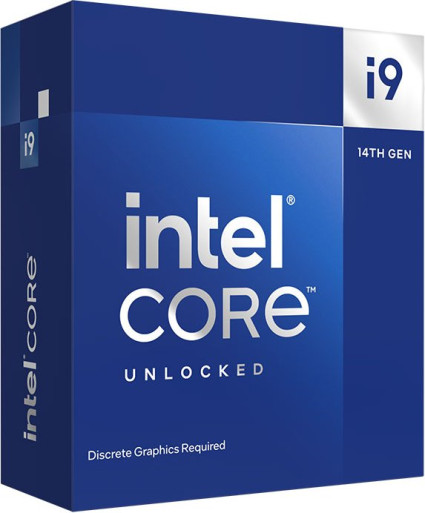
Intel Core Ultra 7 265KF vs. Intel Core i9-14900KF
In diesem Vergleich von Intel Core Ultra 7 265KF versus Intel Core i9-14900KF vergleichen wir die technischen Daten der beiden CPUs. Welcher Prozessor ist schneller? Hier gibt es FPS & Benchmarks in Gaming und Anwendungen.
Hinweis: Unsere Links sind Affiliate Links. Wir erhalten beim Kauf eine kleine Provision, ohne dass sich euer Preis erhöht.

Allgemeine Informationen
| Günstigster Preis |
|
|
| Serie | Intel Core Ultra 200 | Intel Core i-14000 |
| Chip-Architektur | Lion Cove (P-Core) + Skymont (E-Core) | Raptor Cove (P-Core) + Gracemont (E-Core) |
| Codename | Arrow Lake-S | Raptor Lake-S |
| Produktname | Intel Core Ultra 7 265KF | Intel Core i9-14900KF |
Spezifikationen
Die Anzahl der Rechenkerne, die maximale Taktrate und die Größe des Cache können sich auf die Leistung in Spielen und Anwendungen auswirken. Mit 20 Kernen bietet der Intel Core Ultra 7 265KF deutlich weniger Kerne als der Intel Core i9-14900KF mit 24 Rechenkernen. Der maximale Takt liegt beim Intel Core Ultra 7 265KF mit 5.50 GHz etwas niedriger als beim Intel Core i9-14900KF mit 6.00 GHz.
| Kerne (Gesamt) | 20 | 24 |
| Threads | 20 (8+12) | 32 (16+16) |
| Anzahl P-Cores | 8C | 8C |
| Anzahl E-Cores | 12c | 16c |
| Basis-Takt | 3.90 GHz | 3.20 GHz |
| Takt P-Cores | 3.90 GHz | 3.20 GHz |
| Takt E-Cores | 3.30 GHz | 2.40 GHz |
| Turbo-Takt | 5.50 (Turbo Boost Max 3.0) GHz | 6.00 (Thermal Velocity Boost) GHz |
| Turbo P-Cores | 5.50 (Turbo Boost Max 3.0) GHz | 6.00 (Thermal Velocity Boost) GHz |
| Turbo E-Cores | 4.60 GHz | 5.60 GHz |
| Gesamter L2-Cache | 36MiB MB | 32MiB MB |
| Gesamter L3-Cache | 30MiB MB | 36MiB MB |
| Fertigung | TSMC 3 nm | Intel 7 (10 nm) |
| Rechenleistung | - | - |
| Leistungsaufnahme (TDP) | 125W (Processor Base Power) 250W (Maximum Turbo Power) |
125W (Processor Base Power) 253W (Maximum Turbo Power) |
Mainboard-Kompatibilität
Während der Intel Core Ultra 7 265KF den Intel 1851 Sockel nutzt, ist der Intel Core i9-14900KF mit Mainboards für den Sockel Intel 1700 kompatibel. Die genaue Chipsatz-Eignung und die unterstützten PCIe-Lanes können Sie der Tabelle entnehmen.
| Sockel | Intel 1851 | Intel 1700 |
| Chipsatz-Eignung | B860, H810, Z890, W880 | B660, B760, H610, H610E, H670, H770, Q670, Q670E, R680E, Z690, Z790, W680 |
| PCIe-3.0-Lanes | - | - |
| PCIe-4.0-Lanes | - | 4x |
| PCIe-5.0-Lanes | 24x (verfügbar: 20) | 16x |
RAM-Kompatibilität
Während Sie beim Intel Core Ultra 7 265KF bis zu 256 GB vom Typ DDR5 im Dual Channel verbauen können, unterstützt der Intel Core i9-14900KF bis zu 192 GB DDR4/DDR5 Arbeitsspeicher.
| Speicher-Controller | DDR5 | DDR4/DDR5 |
| Anzahl Speicherkanäle | Dual Channel | Dual Channel |
| max. Speichermenge | 256 GB | 192 GB |
| ECC-Unterstützung | - | - |
Grafik
| iGPU | - | - |
| iGPU-Modell | - | - |
| iGPU-Takt | - | - |
| iGPU-Einheiten | - | - |
| iGPU-Rechenleistung | - | - |
| iGPU-Architektur | Xe-LPG / Gen 12.7 | - |
| iGPU-Interface | - | - |
| iGPU-Funktionen | - | - |
Sonstiges
| Freier Multiplikator | ✓ | ✓ |
| Stepping | B0, Spec Code: SRQCU | B0, Spec Code: SRN49 |
| Heatspreader-Kontaktmittel | - | Metall/verlötet |
| Temparatur max. | 105°C (Tjunction) | 100°C (Tjunction) |
| Fernwartung | - | - |
| Einführung | 2024/Q4 (24.10.2024) | 2023/Q4 (16.10.2023) |
| Herstellergarantie | 3 Jahre bei Intel® Boxed-Prozessoren (Info DE/Info EN) | 5 Jahre bei Intel® Boxed-Prozessoren durch erweiterte Garantieunterstützung (Info EN) |
CPU-Funktionen
| AES-NI | ✓ | ✓ |
| AVX | ✓ | ✓ |
| AVX2 | ✓ | ✓ |
| Boot Guard | ✓ | ✓ |
| CET | ✓ | ✓ |
| DL Boost | ✓ | ✓ |
| EIST | ✓ | ✓ |
| GNA 3.0 | - | ✓ |
| Idle States | ✓ | ✓ |
| Instruction Set | ✓ | ✓ |
| ISM | ✓ | ✓ |
| MBEC | ✓ | ✓ |
| Optane Memory Support | - | - |
| OS Guard | ✓ | ✓ |
| Secure Key | ✓ | ✓ |
| Speed Shift | ✓ | ✓ |
| SSE4.1 | ✓ | ✓ |
| SSE4.2 | ✓ | ✓ |
| Thermal Monitoring | ✓ | ✓ |
| VMD | ✓ | ✓ |
| VT-d | ✓ | ✓ |
| VT-x | ✓ | ✓ |
| VT-x EPT | ✓ | ✓ |
| XD Bit | ✓ | ✓ |
Spiele

- Intel Core Ultra 7 265KFAVG100.00 %1%100.00 %
- Intel Core i9-14900KFAVG112.60 %1%109.75 %

- Intel Core i9-14900KFAVG296.5 FPS1%211.4 FPS
- Intel Core Ultra 7 265KFAVG252.9 FPS1%216.9 FPS

- Intel Core i9-14900KFAVG708.4 FPS1%332.5 FPS
- Intel Core Ultra 7 265KFAVG608.4 FPS1%291.6 FPS

- Intel Core i9-14900KFAVG164.9 FPS1%116.2 FPS
- Intel Core Ultra 7 265KFAVG182.3 FPS1%130.9 FPS

- Intel Core i9-14900KFAVG221.4 FPS1%171.2 FPS
- Intel Core Ultra 7 265KFAVG212.4 FPS1%144.3 FPS

- Intel Core i9-14900KFAVG185 FPS1%130.9 FPS
- Intel Core Ultra 7 265KFAVG141.9 FPS1%106.3 FPS

- Intel Core i9-14900KFAVG292.5 FPS1%183.2 FPS
- Intel Core Ultra 7 265KFAVG252.8 FPS1%174 FPS

- Intel Core i9-14900KFAVG105.7 FPS1%78 FPS
- Intel Core Ultra 7 265KFAVG95.1 FPS1%67.6 FPS

- Intel Core i9-14900KFAVG306.5 FPS1%172.3 FPS
- Intel Core Ultra 7 265KFAVG266 FPS1%149.5 FPS

- Intel Core Ultra 7 265KFAVG0.95 FPSIntel Core i9-14900KFAVG0.67 FPS

- Intel Core Ultra 7 265KFAVG3.24 FPSIntel Core i9-14900KFAVG1.74 FPS
Produktivität
Produktivität

- Intel Core Ultra 7 265KFAVG100.00 %Intel Core i9-14900KFAVG104.07 %

- Intel Core Ultra 7 265KFPKT144932 PunkteIntel Core i9-14900KFPKT190901 Punkte

- Intel Core Ultra 7 265KFPKT1446 PunkteIntel Core i9-14900KFPKT1550 Punkte

- Intel Core Ultra 7 265KFPKT1005 PunkteIntel Core i9-14900KFPKT1062 Punkte

- Intel Core Ultra 7 265KFSEK161 SekundenIntel Core i9-14900KFSEK160 Sekunden

- Intel Core Ultra 7 265KFPKT1942 PunkteIntel Core i9-14900KFPKT1980 Punkte

- Intel Core Ultra 7 265KFPKT3184 PunkteIntel Core i9-14900KFPKT3390 Punkte

- Intel Core Ultra 7 265KFPKT21134 PunkteIntel Core i9-14900KFPKT20928 Punkte

- Intel Core Ultra 7 265KFSEK47 SekundenIntel Core i9-14900KFSEK48 Sekunden





